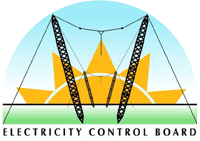NATIONAL ELECTRICITY SUPPORT TARIFF (NEST)
Making basic electricity needs and modern energy more affordable
The NEST was developed by the Ministry of Mines and Energy and the Electricity Control Board, and approved by Cabinet, to make basic electricity consumption more affordable through offering a subsidised tariff option on a low circuit breaker rating.
The low circuit breaker rating with the NEST and lower prices charged for the first 200 units are meant to favour households who use electricity mainly for essential uses and provides a buffer against high electricity price increases through a reduction in tariff. The first 50kWh (units) per month will be provided for at the cost of generating electricity only, subsidising the entire cost of transmitting and distributing the electricity. A further 150kWh (units) per month is provided at the cost of generating and transmitting the electricity, subsidising the distribution cost. Further units can be bought at the normal prepaid electricity tariff of OPE.
Phase 1 of the NEST will be rolled out as a pilot project in Oshakati in August 2017, ahead of planned national implementation in 2018.
- The NEST is available only to residential households and is not available to any form of business, even if such business is conducted from residential premises in a residential area;
- The NEST is available to household customers willing to convert to a 15 Ampere low capacity prepaid household connection
- On the first 50kWh (units) per month you can save up to one third of the normal electricity cost;
- Between 50kWh and 200kWh (units) per month you can save up to 17% of the normal electricity cost;
- When using 200kWh (units) per month, you can save up to N$85 per month;
- By using energy efficient lamps and appliances you can save even more on your electricity cost.
- Household customers wishing to convert to a 15 Ampere connection can apply in writing at the OPE offices during normal office hours;
- When applying, you must bring your prepaid meter number, picture identification (ID, passport or driver’s license) of yourself, a written consent from the owner of the premises in whose name the meter is registered (if you are not the registered owner of the premises), and a copy of your last electricity account if you are not on a prepaid meter.
- Converting to the NEST connection is free of charge for customers who already have a prepaid electricity meter;
- Customers who have a post-paid household connection may also apply, but will be charged OPE’s standard fee for conversion to a prepaid connection.
- Customers are encouraged to familiarise themselves with the limitations of a NEST connection before applying for conversion to avoid disappointment and having to pay a conversion charge for going back to a standard prepaid connection high than 15 Ampere;
- A 15 Ampere circuit breaker limits the maximum power that can be drawn by the household. This converts to a maximum power draw of 3.45kW. The circuit breaker will trip if this power level is exceeded at any time;
- The NEST benefit is available based on calendar months. Any benefit not used in any month lapses, i.e. if you buy only 20 units in one month, the remaining 30 units available at the lowest rate in that month are NOT carried over to the next month. In the next month, only the normal 50 units are available at the lowest rate;
- Conversion to a NEST connection is for free only once. If you convert back to a standard connection and later want to go back to a NEST connection, you will have to pay a conversion fee. In addition, you will be allowed to convert to a NEST connection only once per OPE financial year, which runs from July of one year to June of the next year.
While many appliances can be used with 15 Amps, some of them cannot be used at the same time and our simulation tool can provide some guidance in this respect. For example, if you have a geyser installed, you will need to switch it off during the early evening hours when using other appliances, and switch it back on again when you don’t need to use other appliances. Or, if you have a heater on and want to use the kettle, switch the heater off for the time that the kettle is used.
By adopting the habit of not using too many appliances at once, you can still do most things and use most household appliances with the NEST connection – just not all at the same time.





